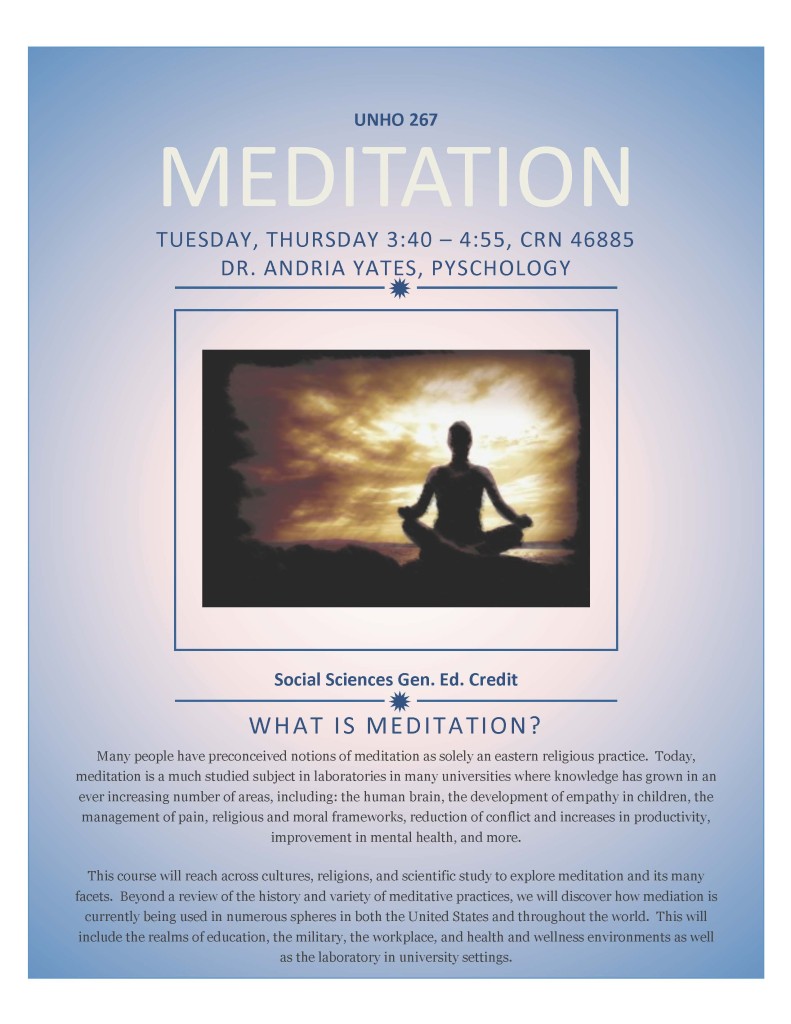UNHO 101 – FIRST-YEAR HONORS SEMINAR
This 1-hour seminar is for all incoming first-year students in the Chancellor’s Honors Program. A complete list of available sections/topics is available here: UNHO101FA14.
UNHO 257 – THE NATURE OF INQUIRY
MWF, 10:10-11:00
Dr. Brent Lamons
Arts and Sciences Gen. Ed. Credit
TR, 3:40 – 4:55
Dr. Andria Yates
Social Sciences Gen. Ed. Credit
What is Meditation? Many people have preconceived notions of meditation as solely an eastern religious practice. Today, meditation is a much studied subject in laboratories in many universities where knowledge has grown in an ever increasing number of areas, including: the human brain, the development of empathy in children, the management of pain, religious and moral frameworks, reduction of conflict and increases in productivity, improvement in mental health, and more.
This course will reach across cultures, religions, and scientific study to explore meditation and its many facets. Beyond a review of the history and variety of meditative practices, we will discover how mediation is currently being used in numerous spheres in both the United States and throughout the world. This will include the realms of education, the military, the workplace, and health and wellness environments as well as the laboratory in university settings.
UNHO 277 – RECONQUISTA AND CONVIVENCIA: CHRISTIANS, JEWS, AND MUSLIMS IN MEDIEVAL IBERIA
TR, 12:40 – 1:55
Cultures and Civilizations Gen. Ed. Credit
This course is designed as an introduction to the fascinating world of Medieval Iberia, and the major historical issues of the period (the eighth through the fifteenth centuries). We will approach the issue on a broad front, studying primary historical documents, art, architecture and literature from the period, as well as the ways in which historians have portrayed the people and events of the past. Particular attention will be focused on the issue of religious pluralism and the world of the so-called convivencia, in which Christians, Muslims and Jews often co-existed peacefully, but sometimes clashed with spectacular violence.
An understanding of this land of “conflict and coexistence” not only illuminates the complexity and texture of the medieval world, but also provides a broader perspective for interpreting the issues of our own day. The contemporary focus on violence and discord between the Islamic and Western culture has frequently been described as a “clash of civilizations”, as if the human societies of the Mediterranean world existed as distinct binaries. Studying the multifaceted nature of the Spanish Middle Ages helps to dispel the monolithic interpretation of European history and culture, and to remind us that human societies share a common past, often overlooked in today’s world.

